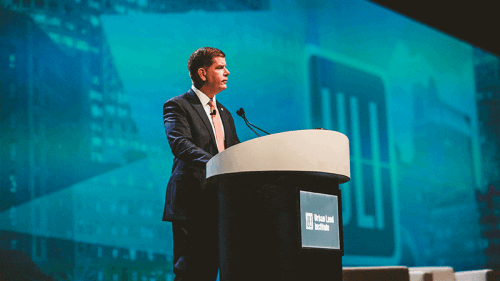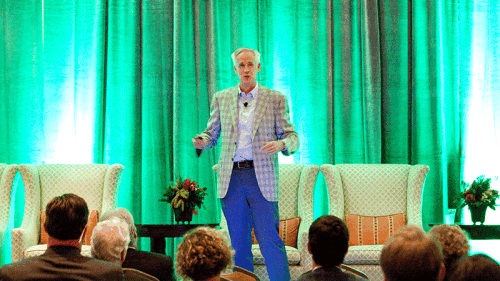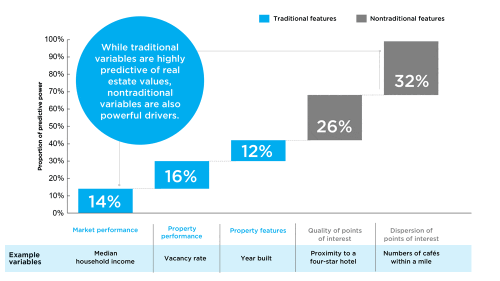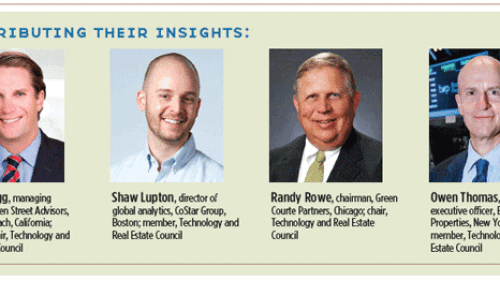Economy, Market & Trends
In an emerging “gig” economy, with each individual developing his or own brand, does leadership still matter? At the ULI Fall Meeting in Boston, Ralph Boyd, ULI senior resident leadership fellow, moderated a panel of industry notables discussing the critical importance of leadership.
Speaking at the ULI Fall Meeting, panelists said that even as experimentation with blockchain continues “fiercely,” the business world is now taking a tougher look at blockchain applications and asking why so few proofs of concept have made it to the commercial phase. That scrutiny ultimately could lead to better, more useful applications.
At the 2018 Fall Meeting in Boston, Mayor Martin Walsh called on developers and other real estate professionals to help the city and state move housing and infrastructure initiatives forward.
In a keynote at ULI South Carolina’s Capital Markets Conference, John Burns, author and CEO of John Burns Real Estate Consulting, explained how changing the way we think about age-based cohorts can help us better understand market trends and predict consumer behavior.
New research by McKinsey & Company, a ULI Global Corporate Partner, looks at how “big data” is transforming real estate.
At a recent ULI South Carolina event, panelists representing three distinct segments of the real estate market looked at the role of technology as a force for innovation. Common threads included identifying an inefficiency or a problem in a certain part of the market, and then using technology to solve it.
The city of Dallas’s first-ever comprehensive housing policy is drawing significant interest from real estate professionals, but building affordable housing in one of the nation’s most income-segregated cities remains a significant challenge. A group of housing experts gathered in September to discuss the policy and affordable housing opportunities at an event hosted by ULI North Texas.
Members of ULI’s new Technology and Real Estate Council discuss the disruptive effects of technologies on the real estate industry, the challenges of using “big data” effectively, and the technological applications under development for real estate.
In a panel discussion at ULI South Carolina’s Capital Markets Conference on Kiawah Island, participants heard from several key players in the site selection space—in both the public and private sectors. Panelists said that employers making the decisions about where to establish or relocate their businesses rarely fall in love at first sight, with timing and compromise both playing a role in the ultimate decision.
According to research by Marcus & Millichap, the accelerating U.S. economy, supported by strong employment growth and rising confidence levels, bodes well for continued hotel property performance. Elevated consumer and business confidence levels will likely buoy room demand through the remainder of the year, keeping occupancy at a record high and supporting growth in revenue per available room.




